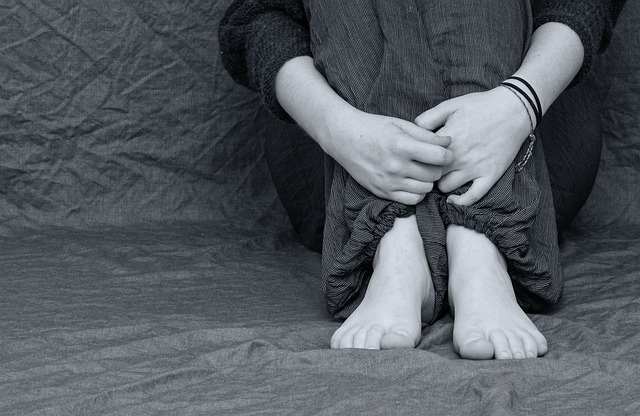大切な人との離婚や死別を経験…
悲しみや混乱の中、これからの日本での生活、特にご自身のビザ(在留資格)のことで、大きな不安を抱えていらっしゃるのではないでしょうか。
「今のビザはどうなってしまうの?」
「このまま日本に住み続けることはできるの?」
「何を、いつまでに、どうすればいいのか分からない…」
この記事では、そんなあなたの疑問や不安に寄り添い、まず何をすべきか、そして今後どのような選択肢があるのかを、できるだけ分かりやすくご説明します。
一人で抱え込まず、まずは落ち着いて、これからのご自身の未来のために情報を確認していきましょう。
【最重要】14日以内に必ず行うべき「届出」
離婚または死別をされた後、真っ先に、そして必ず行わなければならない手続きがあります。 それは、出入国在留管理局(入管)への「配偶者に関する届出」です。
これは、離婚・死別した日から14日以内に行うことが法律で義務付けられています。
- 何を届けるの?
「日本人の配偶者と離婚しました」または「死別しました」という事実を報告します。 - どこに届ければいいの?
あなたの住所地を管轄する出入国在留管理局です。 - どうやって届ければいいの?
1.入管の窓口に直接提出する
2.郵送で提出する
3.「出入国在留管理庁電子届出システム」を利用してオンラインで行う
この届出を正当な理由なく怠ると、罰金の対象となったり、後のビザの変更申請で不利になったり、最悪の場合、在留資格が取り消されたりする可能性があります。 まず、この手続きを必ず済ませるようにしてください。
(注意) この届出は、あくまで「離婚・死別した」という事実を報告するだけの手続きです。これ自体が、あなたのビザの種類を変更する申請ではありません。
今の「日本人の配偶者等」のビザはどうなる?
日本人と離婚・死別したことにより、あなたは「日本人の配偶者」ではなくなりました。
そのため、残念ながら、原則として現在の「日本人の配偶者等」の在留資格のまま、日本に在留し続けることはできません。
法律では、「正当な理由なく、配偶者としての活動を6ヶ月以上行わないで在留している場合」、在留資格が取り消しの対象になると定められています。
「じゃあ、6ヶ月以内に日本から出ていかないといけないの?」と、さらに不安に思われたかもしれません。
ご安心ください。すぐに日本を離れなければならない、ということではありません。
これは「速やかに次のステップに進む必要がありますよ」というサインだと捉えてください。
きちんと手続きを踏めば、別の種類のビザに変更して、引き続き日本で暮らし続けることができる可能性は十分にあります。
これからも日本に住み続けるための3つの選択肢
では、具体的にどのようなビザへの変更が考えられるのでしょうか。
あなたのこれまでの生活状況や、学歴、職歴、お子様の有無などによって、目指せるビザは変わってきます。
選択肢1:「定住者」ビザへの変更
多くの方がまず検討するのが、この「定住者」ビザです。活動に制限がなく、これまで通り比較的自由に仕事ができます。離婚の場合と死別の場合で、少し審査のポイントが異なります。
離婚された場合(離婚定住)
- 日本人と相当期間(目安として3年以上)、正常な婚姻関係・同居生活が継続していたことが重要です。
- その他の要件
・独立して生計を立てられる収入や資産があること(安定した仕事に就いているなど)。
・日常生活に困らない程度の日本語能力があること。
・税金や年金などの公的義務をきちんと果たしていること。 - 日本人の実子を、あなたが親権者として日本で育てていく場合は、上記の婚姻期間が比較的短くても、許可される可能性が高くなります。
死別された場合(死別定住)
- 要件は上記の離婚定住とほぼ同じですが、ご自身の意思に反する別れであるため、より同情的に審査される傾向があります。
- それでも、一定の婚姻期間(目安として3年以上)や、今後日本で安定して生活していけるかどうか(独立生計要件)は、同様に重要なポイントとなります。
選択肢2:「就労ビザ」への変更
もし、大学や専門学校を卒業していたり、専門的な実務経験があったりする場合は、働くためのビザ(就労ビザ)への変更も有力な選択肢です。
- 代表的な就労ビザ:「技術・人文知識・国際業務」など
- ポイント:
・学歴・職歴と仕事内容の関連性が厳しく審査されます。(例:大学で経済学を学び、企業の経理職に就くなど)
・安定した収入が見込める会社から内定をもらっていることが必要です。
「日本人の配偶者等」のビザでは自由に仕事を選べましたが、就労ビザに変更する場合は、ご自身の学歴や経歴で許可される仕事内容が限られてくる、という点に注意が必要です。
選択肢3:その他のビザへの変更
上記のほかにも、「経営・管理」ビザ(ご自身で会社を設立して事業を行う場合)や、特定の分野で働く「特定技能」ビザなど、様々な可能性があります。
一人で悩まず、専門家である行政書士にご相談ください
「私の場合、どのビザを目指せるんだろう?」
「婚姻期間が3年に少し足りないけど、可能性はある?」
「どんな書類を集めて、どうやって理由を説明すればいいの?」
お辛い状況の中、このような複雑な手続きをご自身で調べ、進めていくのは、精神的にも時間的にも、本当に大変なご負担だと思います。在留資格が取り消されるかもしれないという時間的なプレッシャーもあります。
そんなときこそ、入管業務を専門とする行政書士子浦昇事務所を頼ってください。
ビザの専門家である行政書士は、あなたの新しい人生の再スタートを、法的な側面から全力でサポートします。
ご相談やお仕事のご依頼は下記ホームページからお問い合わせください!
おわりに
今は、これからの人生に対する不安で、目の前が真っ暗に感じられるかもしれません。しかし、あなたは一人ではありません。 日本で築いてきた生活や人間関係、そしてご自身の未来のために、正しい手続きを、正しい順序で踏んでいけば、必ず道は開けます。
その最初の一歩として、どうか一人で抱え込まず、私たち専門家にご相談ください。あなたのこれまでの頑張りと、これからの人生を尊重し、最善の解決策を一緒に見つけさせていただきます。
初回のご相談は無料で行っている事務所も多くあります。まずはあなたの声をお聞かせください。私たちが、あなたの力になります。
あわせて読みたい関連記事

Navigating Your Visa Status in Japan After Divorce or Death of a Japanese Spouse
We are truly sorry for what you are going through. Experiencing a divorce or the loss of a loved one is incredibly difficult, and we extend our deepest sympathies to you during this painful time. Amidst the grief and confusion, you are likely facing immense anxiety about your future in Japan, especially concerning your visa (Status of Residence).
“What will happen to my visa now?” “Can I continue living in Japan?” “I don’t know what to do, when to do it, or how.”
This article is written to support you through these questions and anxieties. We will explain, as clearly as possible, what you need to do first and what options you may have moving forward.
Please know that you do not have to face this alone. Let’s take a calm moment to understand the facts for the sake of your own future.
The First, Most Critical Step: A Mandatory Notification within 14 Days
There is one procedure you must complete first and without fail after your divorce is finalized or your spouse has passed away.
This is the “Notification concerning the spouse” which must be submitted to the Immigration Services Agency of Japan (the “Immigration Office”).
By law, you are required to submit this notification within 14 days of the date of divorce or death.
- What is it? It is a formal report stating the fact that you have divorced or been bereaved of your Japanese spouse.
- Where do I submit it? At the regional Immigration office that has jurisdiction over your address.
- How do I submit it?
- In-person at the Immigration office counter.
- By postal mail.
- Online, using the Immigration Services Agency’s e-Notification System.
Failure to submit this notification without a justifiable reason can result in fines, disadvantages in future visa applications, or in the worst-case scenario, the revocation (cancellation) of your current visa. Please make this your absolute first priority.
(Note) This notification is simply a report of a change in your circumstances. It is not an application to change your visa type.
What Happens to My Current “Spouse of a Japanese National” Visa?
By divorcing or being widowed, you are no longer the spouse of a Japanese national. Therefore, unfortunately, you cannot, in principle, continue to reside in Japan under your current “Spouse or Child of Japanese National” visa.
The law states that if you continue to reside in Japan for six months or more without engaging in the activities of a spouse and without a justifiable reason, your Status of Residence may be subject to revocation.
“Does that mean I have to leave Japan within six months?” This thought may cause you even more anxiety.
Please don’t panic. This does not mean you must leave Japan immediately. Think of it as a signal that you need to take the next steps promptly. By following the correct procedures, there is a good chance you can change to a different type of visa and continue living in Japan.
Three Main Options for Continuing to Live in Japan
So, what kind of visa change is possible? The best option for you will depend on your personal circumstances, such as your life in Japan so far, your educational and professional background, and whether you have children.
Option 1: Changing to a “Long-Term Resident” (定住者, Teijusha) Visa
This is the first option many people in your situation consider. The “Long-Term Resident” visa has no restrictions on work activities, allowing you to work freely as you may have done before. The points of examination differ slightly between cases of divorce and bereavement.
- In Case of Divorce (Divorce-based Long-Term Resident)
- Key Point: It is crucial that you were in a genuine marital relationship, living together, for a significant period (generally, a minimum of three years is the guideline).
- Other Requirements:
- You must have sufficient assets or ability to make an independent living (e.g., you have a stable job).
- You must possess a certain level of Japanese language proficiency for daily life.
- You must be fulfilling your public duties, such as paying taxes and pensions.
- If you have parental authority and are raising your child with the Japanese national in Japan, your application may be viewed more favorably, even if your marriage was slightly shorter than three years.
- In Case of Bereavement (Widow/Widower-based Long-Term Resident)
- The requirements are largely the same as for the divorce-based case. However, as the separation was not by your own will, your situation is often considered more sympathetically during the review.
- Nevertheless, a certain length of marriage (again, a guideline of three years) and your ability to live a stable life in Japan going forward (the independent livelihood requirement) remain important factors.
Option 2: Changing to a Work Visa
If you have graduated from a university or technical college, or if you have specialized professional experience, changing to a work visa is another strong option.
- Typical Work Visas: “Engineer/Specialist in Humanities/International Services,” etc.
- Key Point: The connection between your educational/professional background and your job description will be closely examined. (e.g., A person who studied economics at university getting a job in a company’s accounting department).
- You will need to have a job offer from a company that can provide a stable income.
A key difference is that while the “Spouse” visa allowed you to work in any field, a work visa will limit you to jobs that are permissible based on your specific background.
Option 3: Changing to Other Visa Categories
In addition to the above, other possibilities exist, such as the “Business Manager” visa (if you plan to start your own company) or the “Specified Skilled Worker” visa for certain industries.
Don’t Face This Alone: Consult with a Professional Gyoseishoshi Lawyer
“Which visa is the right one for my situation?” “My marriage was a little less than three years. Do I still have a chance?” “What documents do I need, and how can I explain my situation effectively?”
Navigating these complex procedures on your own, especially during such an emotionally taxing time, is an immense burden. There is also the time pressure of a potential visa revocation.
This is precisely when you should rely on us, Gyoseishoshi Lawyers who specialize in immigration law.
As visa specialists, we are here to provide full legal support for the next chapter of your life in Japan.
- Accurate Assessment: We will listen carefully to your circumstances (length of marriage, job, income, children, etc.) and advise you from a professional standpoint on which visa category offers you the highest probability of success.
- Expert Document Preparation: The most critical document in a visa change application is the “Reason Statement,” where you explain why you need to continue residing in Japan. We will help you craft a compelling and logical explanation based on your personal story.
- Reduced Emotional Burden: By handling the tedious tasks of collecting documents, preparing applications, and communicating with the Immigration office, we can significantly lighten your emotional load, allowing you to focus on rebuilding your life.
- Timely Action: In a situation where time is critical, we act swiftly and accurately to minimize the risk of rejection.
In Closing
Right now, you may feel like your future is uncertain and dark. But you are not alone. If you take the correct steps in the right order, there is a path forward to protect the life and relationships you have built in Japan.
As a first step on that path, please do not carry this burden by yourself. Reach out to a specialist. We respect the life you have built and the future you deserve, and we will work with you to find the best possible solution.
Many firms offer initial consultations for free. Please feel free to contact us. Let us listen to your story. We are here to help.


